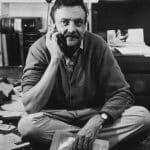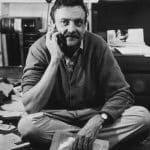
E.B. White, author of Charlotte’s Web, once said that a writer who waits for the ideal conditions in which to write will die without putting a word to paper. Still, there’s something to be said for routine, and even for good old fashioned writer’s superstition. Getting into the right state of mind and adjusting your daily habits to make writing content a little easier can mean the difference between getting your work done early and taking the afternoon off, or laboring well into the evening trying to crank out 300 words.
Here are some of our favorite routines of famous authors. Some may seem a little eccentric but, when a writer finds what works for them, they tend to stick to it, no matter how crazy it may seem to other people.
Haruki Murakami
The Japanese surrealist novelist Haruki Murakami has a routine that involves getting up at four AM every day, working for five or six hours, running or swimming, and then reading and listening to music until going to bed at nine in the evening. Nothing too strange about this routine, except for the effect that it has on the writer, who claims to use it to sort of hypnotize himself. The routine becomes meditative, washing away all of life’s daily hassles in order to focus on work.
Kurt Vonnegut
Vonnegut would work in short bursts of a couple hours or so at a time in the mornings. He’d wake up at five thirty, work til eight, eat breakfast, work until ten, and then that was about it. From there he’d go on about his day, start drinking in the afternoon, and fall asleep at ten PM. By getting his writing out of the way in the morning, he was free to take the rest of the day to himself.
Victor Hugo
Victor Hugo was known to remove his clothing and hand it to a servant to hide. In doing so, Hugo was unable to leave the house until he had finished writing.
Truman Capote
Capote spent a lot of time on his back, drinking cocktails and smoking cigarettes, claiming that he found it impossible to do any serious thinking in an upright position.
The Procrastinators
While Vonnegut and Murakami began work early and Hugo went to extreme measures to get his done, not every writer is so eager. Poe and Kafka were both legendary procrastinators. When Franz Kafka landed a job that would lend him endless free time, he took advantage of it by having an early lunch, taking a four hour nap, getting a little exercise in, and then, about an hour or two before midnight, he would write for a couple hours. Diary entries and letters, that is, squeezing in a few sentences here and there for his short stories when he could.
Edgar Allen Poe’s schedule is a little harder to nail down. As the writer himself put it, “I am excessively slothful, and wonderfully industrious—by fits.” He wrote when the mood struck him.
There’s something romantic about writing only when the mood takes you, but let’s take a minute to note that Poe and Kafka are the writers on this list who had the hardest time making a living on their fiction and poetry. We’d all love to write only when we’re in the mood, but it’s hard to explain to a client that they’re just going to have to wait for inspiration to strike.






![What are Clickbait Headlines? [+ Clickbait Examples that Work as Blog Post Titles]](https://rockcontent.com/wp-content/uploads/2021/08/clickbait-examples-300x158.png)
